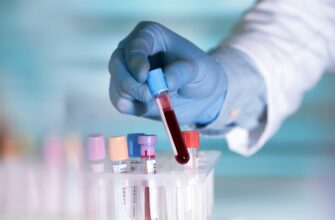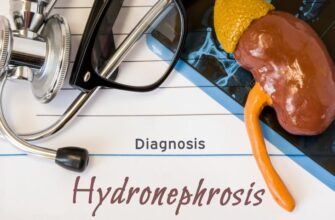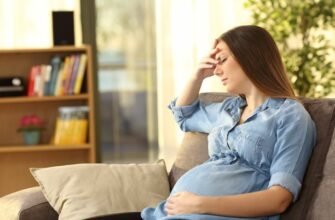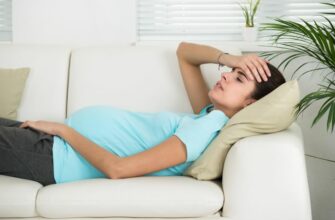Menopause is the transition period during which the female body ceases its reproductive capabilities. The average age to reach menopause is 51, but the most common range is from 45 to 55 years of age. Hormone fluctuations cause a variety of symptoms. The process takes an average of four years, but time and experiences vary from woman to woman.
Absent Periods
Before menopause, during so-called perimenopause, women begin having irregular menstrual cycles. The duration of their period may be longer than normal, much shorter, or, occasionally, skipped altogether. Pregnancy is one common reason for this irregularity, but by the mid-40s, menopause is a more likely cause. The changes can also affect the period flow, which may be heavier or lighter. Menopause is the time that marks the end of menstruation and is diagnosed when a woman does not have menses for 12 consecutive months. A reduction in estrogen and progesterone hormone production causes these fluctuations and the cessation of the menses.
Heavy Nighttime Sweats
Waking up in the middle of the night feeling sweaty and uncomfortable is a common symptom of menopause. Some experts believe a decline in estrogen triggers these sudden sweats or hot flashes that can, in some instances, become severe enough to disrupt sleep. Lowering the thermostat during the night can help ease this symptom. If it becomes unbearable, it is best to see a doctor, as other health issues can also cause night sweats.
Mood Changes
Hormonal changes during menopause can also affect mood and emotions. Women in menopause may find their emotions change quickly; they may feel calm and content one moment, and depressed or irritable the next. Handling mood swings can be stressful, but understanding the underlying physical causes and dealing with the hormone imbalances makes it easier to adjust and cope.
Exhaustion
The changes during menopause have a draining effect on the body. The feeling of being exhausted goes beyond sleep deprivation, although lack of sleep due to night sweats or other symptoms may aggravate it. At times during menopause, women may feel physically and mentally weak, but there are treatments to manage these symptoms.
Loss of Hair
Estrogen is important for hair growth, and when the hormone levels fall during menopause, hair on the scalp begins to thin and fall out. As long as other health problems do not accompany hair loss, this can be considered a somewhat normal, if distressing, symptom. In some cases, these hormonal imbalances may also cause facial hair growth. Some women choose to take hormone supplements, which can decrease the amount of hair loss and unwanted growth.
Feeling Dizzy
During menopause, women might experience dizzy spells and feel unsteady while walking. The severity of this symptom varies widely, from physical unbalance to quickly passing dizziness. Sometimes, after-effects of lightheadedness, such as nausea and headaches, continue after the dizziness passes. In extreme cases, this symptom can cause falls. A number of medical conditions can cause dizziness, so it is important to see a doctor even if one assumes they are experiencing a symptom of menopause.
Putting on Weight
While scientists disagree over how menopause affects changes in weight, there is evidence that the process reduces the body’s metabolic rate. This change means that the body needs fewer calories, so even if a woman maintains her regular diet, she might put on additional weight as her caloric needs drop. Additionally, menopause-induced changes could redistribute body fat, causing more to be stored in the abdomen area.
Annoying Allergies
Hormone balance affects the immune system. When menopause alters the former, existing allergies may become more acute, or new ones may develop. Incidents of hay fever, skin rashes, and asthma often increase at this time due to a decrease in progesterone levels. In the majority of cases, the allergic reactions are mild, and antihistamines can alleviate the symptoms.
Heartbeat Becomes Irregular
Irregular heartbeat or elevated heart rate can be alarming, but when other factors are not present, menopause may be the culprit. This is one of the nervous system’s responses to hormonal changes, particularly due to lower levels of estrogen. While the experience can be frightening, generally speaking, there is no reason for concern. However, because an irregular heartbeat can be associated with other symptoms such as chest pain or shortness of breath, it’s important to speak with a doctor when this symptom develops.
Forgetfulness and Lack of Concentration
Many experts believe the hormonal changes that women undergo during menopause can cause forgetfulness and difficulties with concentration. Some women experience mild bouts of absentmindedness; other women may find that an impaired memory and inability to focus on tasks interfere with daily life. Hormonal supplements may address hormone imbalances and improve memory and concentration, but should only be taken on the advice of a doctor.

 Home
Home Health
Health Diet & Nutrition
Diet & Nutrition Living Well
Living Well More
More




















